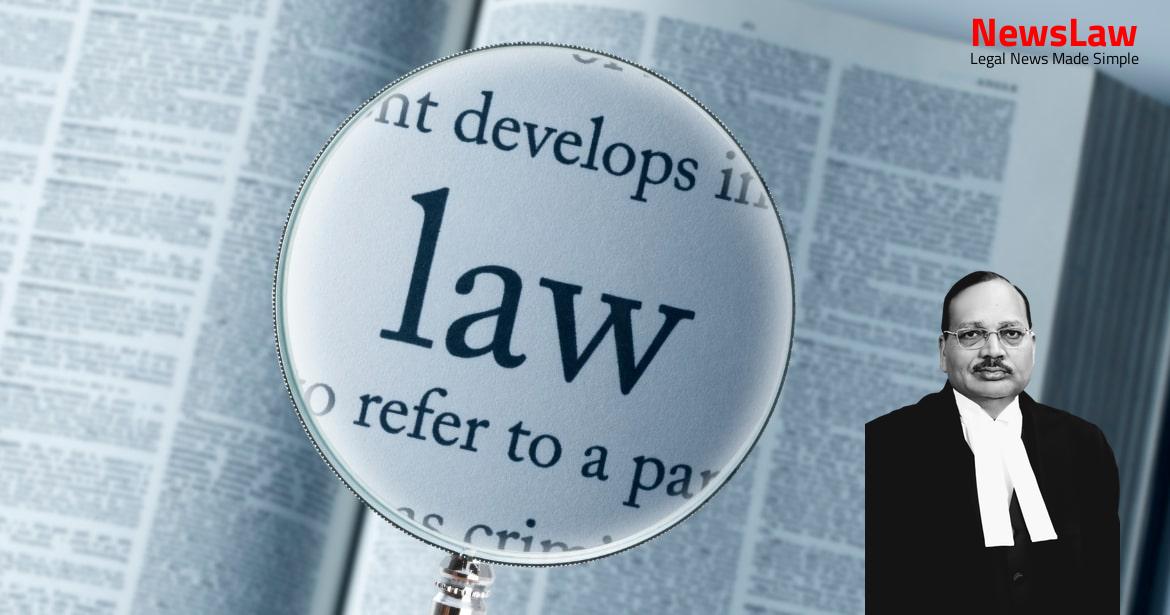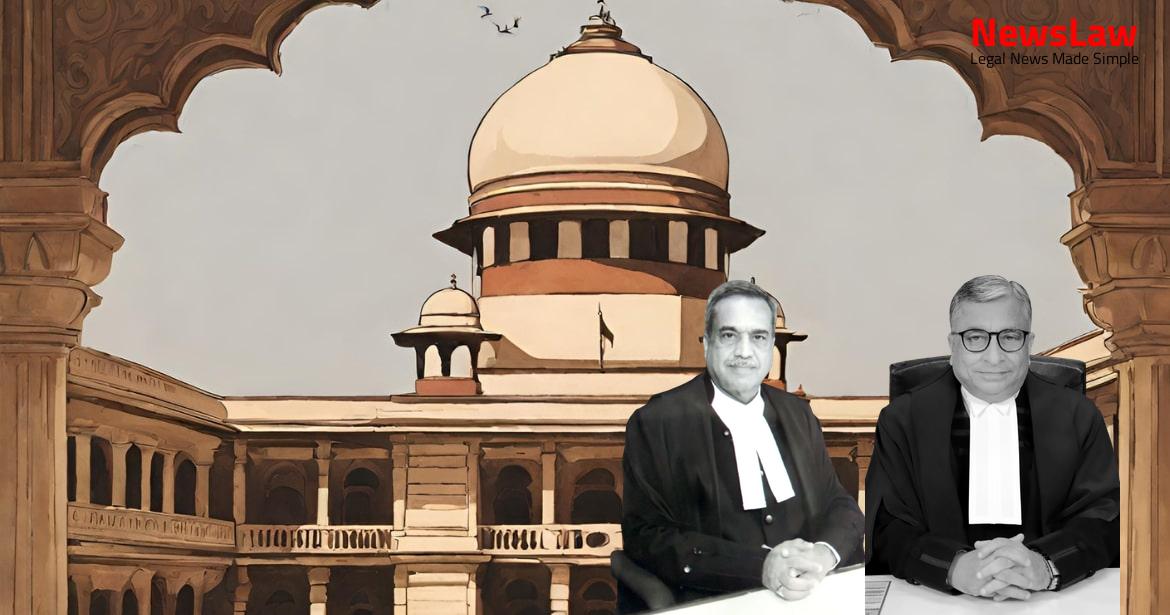The appellants before this Court were the plaintiffs in a civil suit, filed in the year 2021, seeking declaration that the C onveyance Deed dated 17.12.2019 to be declared null and void, and that the registered Development Agreements dated 17.09.2007, 20.11.2007, 30.11.2007, 03.12.2007
Also Read: https://newslaw.in/supreme-court/determining-juvenility-in-criminal-cases-a-critical-analysis/
and 27.02.2008 stand validly terminated.
Emerald Acres Private Limited (hereinafter referred to as ‘EAPL’) to develop, trade, and deal with the property and also to acquire such further properties as may be mutually agreed between the parties. The appellants i.e., SD’s wife and his son then filed a suit seeking, inter alia, a declaration that the Deed of Conveyance dated 17.12.2019 be declared null and void, and that the Development Agreements entered into pursuant to the two Tripartite Agreements be declared validly terminated.
The Trial Court and the High Court have rightly held that the broad language of the “arbitration clause” in the two Tripartite Agreements dated 31.03.2007 and 25.07.2008 would cover the dispute raised by the appellants before the Civil Court, and hence the case has been rightly referred for arbitration. — (1) A judicial authority, before which an action is brought in a matter which is the subject of an arbitration agreement shall, if a party to the arbitration agreement or any person claiming through or under him, so applies not later than the date of submitting his first statement on the substance of the dispute, then, notwithstanding any judgment, decree or order of the Supreme Court or any court, refer the parties to arbitration unless it finds that prima facie no valid arbitration agreement exists. Provided that where the original arbitration agreement or a certified copy thereof is not available with the party applying for reference to arbitration under sub-section (1), and the said agreement or certified copy is retained by the other party to that agreement, then, the party so applying shall file such application along with a copy of the arbitration agreement and a petition praying the court to call upon the other party to produce the original arbitration agreement or its duly certified copy before that court. Insofar as the nature of intervention is concerned, it is recommended that in the event the court/judicial authority is prima facie satisfied against the argument challenging the arbitration agreement, it shall appoint the arbitrator and/or refer the parties to arbitration, as the case may be. However, if the judicial authority concludes that the agreement does not exist, then the conclusion will be final and not prima facie.” Note to the clause for amendment of Section 8 by the Arbitration and Conciliation (Amendment) Bill, 2015 reads as under: Clause 4 of the Bill seeks to amend Section 8 of the principal Act to specify that the judicial authority shall refer the parties to arbitration unless it finds that prima facie no valid arbitration agreement exists. Clause 11 of the Tripartite Agreement dated 31.03.2007 reads as under: “SD and MB have in due course agreed to develop, further trade and deal with the Property and also to acquire such further properties as may be mutually agreed between the Parties and any such further acquisitions that may be made through a Special Purpose Vehicle viz.
The Arbitral Tribunals are private fora chosen voluntarily by the parties to the dispute, to adjudicate their disputes in place of courts and tribunals which are public fora constituted under the laws of the country. (2) When cause of action and subject- matter of the dispute affects third-party rights; have erga omnes effect; require centralised adjudication, and mutual adjudication would not be appropriate and enforceable. In Vidya Drolia (supra ), this Court has held that Court will only decline reference under Section 8 or under Section 11 of the Act in rare cases where the Court is certain that either the arbitration agreement is non-existent, or the dispute is itself “manifestly non-arbitrable”. Competence of arbitral tribunal to rule on its jurisdiction.—(1)
The arbitral tribunal may rule on its own jurisdiction, including ruling on any objections with respect to the existence or validity of the arbitration agreement, and for that purpose,— (a) an arbitration clause which forms part of a contract shall be treated as an agreement independent of the other terms of the contract; and (b) a decision by the arbitral tribunal that the contract is null and void shall not entail ipso jure the invalidity of the arbitration clause. (5) The arbitral tribunal shall decide on a plea referred to in sub-section (2) or sub- section (3) and, where the arbitral tribunal takes a decision rejecting the plea, continue with the arbitral proceedings and make an arbitral award.
This exception would also apply to cases where the parties in the process of negotiation, may have entered into a draft agreement as an antecedent step prior to executing the final contract. Appointment of an arbitrator may be refused if the arbitration agreement is not in writing, or the disputes are beyond the scope of the arbitration agreement. Article V(1)(a) of the New York Convention states that recognition and enforcement of an award may be refused if the arbitration agreement “is not valid under the law to which the parties have subjected it or, failing any indication thereon, under the law of the country where the award was made”.
The issue of limitation is a jurisdictional issue, which would be required to be decided by the arbitrator under Section 16, and not the High Court at the pre- reference stage under Section 11 of the Act. Short of the narrow field stated above, the scope of judicial scrutiny at the stage of Section 11 (6) or Section 8 is extremely limited.
Also Read: https://newslaw.in/supreme-court/standing-orders-vs-cca-rules-a-legal-analysis/
Regency Mahavir Properties, (2021) 4 SCC 786, therein this court after referring to all the relevant precedents and the case laws has held that whether it is a suit for cancellation of a deed or a declaration of rights rising from the deed, it would only be an action in personam and not in rem.
Janardhan Reddy, 2015 SCC Online Hyd 370, was held to be wrong wherein it was held that a suit under Section 31 of Specific Relief Act amounts to an action in rem and this adjudicatory function can only be done by the Competent Civil Court and the powers cannot be exercised by an Arbitrator. The allegations must have some implication in public domain to oust the jurisdiction of an Arbitrator, if an allegation of fraud exists strictly between the parties concerned, the same will not be termed to be as a serious nature of fraud and hence would not be barred for arbitration. No order as to costs.
Case Title: SUSHMA SHIVKUMAR DAGA Vs. MADHURKUMAR RAMKRISHNAJI BAJAJ
Case Number: C.A. No.-001854-001854 / 2023



